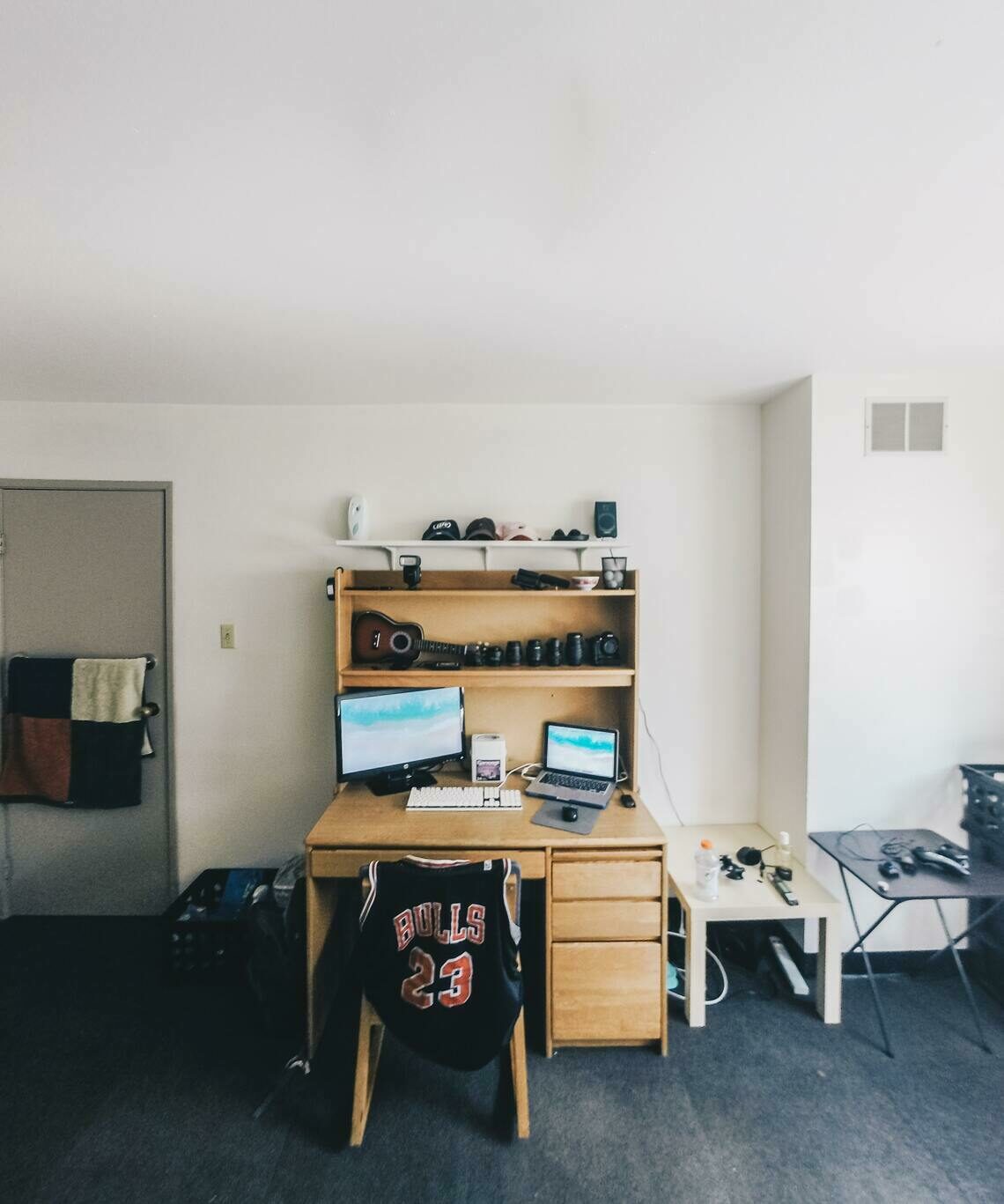After submitting university applications, students turn their attention to the logistics of where they are going to live. Many students believe that if they live in halls of residence, they will get the ‘full’ university experience. Some students move hundreds or thousands of miles away from their home specifically to enjoy their freedom. Other students prefer their creature-comforts of staying at home, rather than living in university accommodation. Making a decision about where to live isn’t easy, especially if money is tight. Halls of residences are not cheap. Here are some pros and cons of living in university halls that may help you decide your own best fit.
New students may well be homesick and nervous, but also excited about the new adventure they are about to experience. Living in halls will mean that everyone is in the same situation and probably experiencing the same emotions. In contrast to living in a home or apartment, where students may only meet a small number of other students, living in halls will provide access to a large number of potential future friends.There are hundreds of rooms in most halls, so you are likely to find someone with whom you have shared interests and hobbies. You are also close by to attend university events and functions, such as freshers’ week.
Living in university accommodation means that students by and large have to fend for themselves, but within a relatively secure environment. There are usually staff in and around university grounds providing some night security too. Living on campus in halls of residence is manageable stepping stone to becoming independent. There are less responsibilities than exist with private renting, but more freedom than staying with family. Bills and home improvements are usually included in the rent of university halls. Some halls even have a cleaning service, which is worth its weight in gold!
Some universities provide catered halls of residence. If students opt to live in a catered hall they can access surprisingly good and nutritious meals three times a day. No shopping, cooking or washing up! However, most halls, especially in the UK don’t offer a catered service. It doesn’t overly matter because university halls are in close proximity to, or on the university campus. Consequently, there will still be lots of bars and cafes where students can buy inexpensive meals. In addition, students in halls can share their cooking and resources and have fun in the process. Once you've decided if halls of residence are for you, then the next step is to decide whether to go for catered or uncatered! Cost, of course being a factor.
Living in halls means that students are not likely to be in for any big surprises. Most universities offer virtual and real tours of their university halls, showing what the accommodation is like. The rooms are often basic, but clean and standard. There is, also, often the option to pay to have a private en-suite if sharing a bathroom does not appeal. Some halls are known for being 'party venues' while others are known for being more quiet and studious, so there is some choice as to the vibe of the hall you are choosing. Living in halls allows privacy and a safe space, while also offering a community place to meet others.
Halls can be noisy. Let’s face it, students are known for partying and having fun. If you’ve got an early lecture, but someone in your hall or above and below it wakes you up at three in the morning screaming on their way home from a night out, it will be annoying! Although as said in the pros, some halls are more noisy than others. However, even if people are simply chatting in the kitchen or opening and closing their room doors it can make it difficult to fall asleep or difficult to concentrate on studying. However, at least if students are in halls they are probably also pretty close to the university library where they can go and study...
Living in halls can make you feel that you are missing out. You might feel that you are missing out on the fun or the opportunity to make friends if you are don’t get involved in every social event. Also, if you are not part of a particular friendship group that has developed within a hall, you may feel hurt and a sense of not belonging. University is when FOMO is most intense, especially in halls, where everyone is in close proximity with others. Students are continuously surrounded by peers who may be on similar or the same courses, their interests and motivations might also be aligned, so the distinction between personal and social life blurs. This creates what seems like an endless supply of possibilities for social contact and if you’re not part of it then you may suffer from FOMO. Contrastingly if you are part of it then your studies might take a dip.
Although living in a university hall or dorm can provide you with a ready-made group of friends, it can also make it challenging to get away from everyone. In the USA, it is usual for students to share dorm rooms and even rest rooms. This can be a hard transition to make if you are a quiet person who enjoys quiet time alone from others. Even if you enjoy social interaction and are social, living on campus is not necessarily the best setting for studying or resting.
On balance, we at NotesVilla, think it is hard to top the benefits of living in a residence hall on campus, at least for the first year. That is with the proviso that it is affordable to you. The drawbacks, of course include missing home cuisine and being unable to gripe about the journey to class! Choosing this option provides students with greater freedom and space than afforded when staying with familiy, less bother than renting an apartment and access to consistent utilities and housekeeping.
If you think that halls will be for you then the next step is to think carefully about the hall. How close do you want to be to the facilities? How important is it to have your own bathroom? What is the vibe of the hall? Do you want to choose catered or self-catering? There's a lot to think about. Halls of residence are not for everyone though and if you’re still not convinced it's for you, check out this article on choosing a university. It provides more insight about the type of accommodation that might work for. There's lots to think about!

